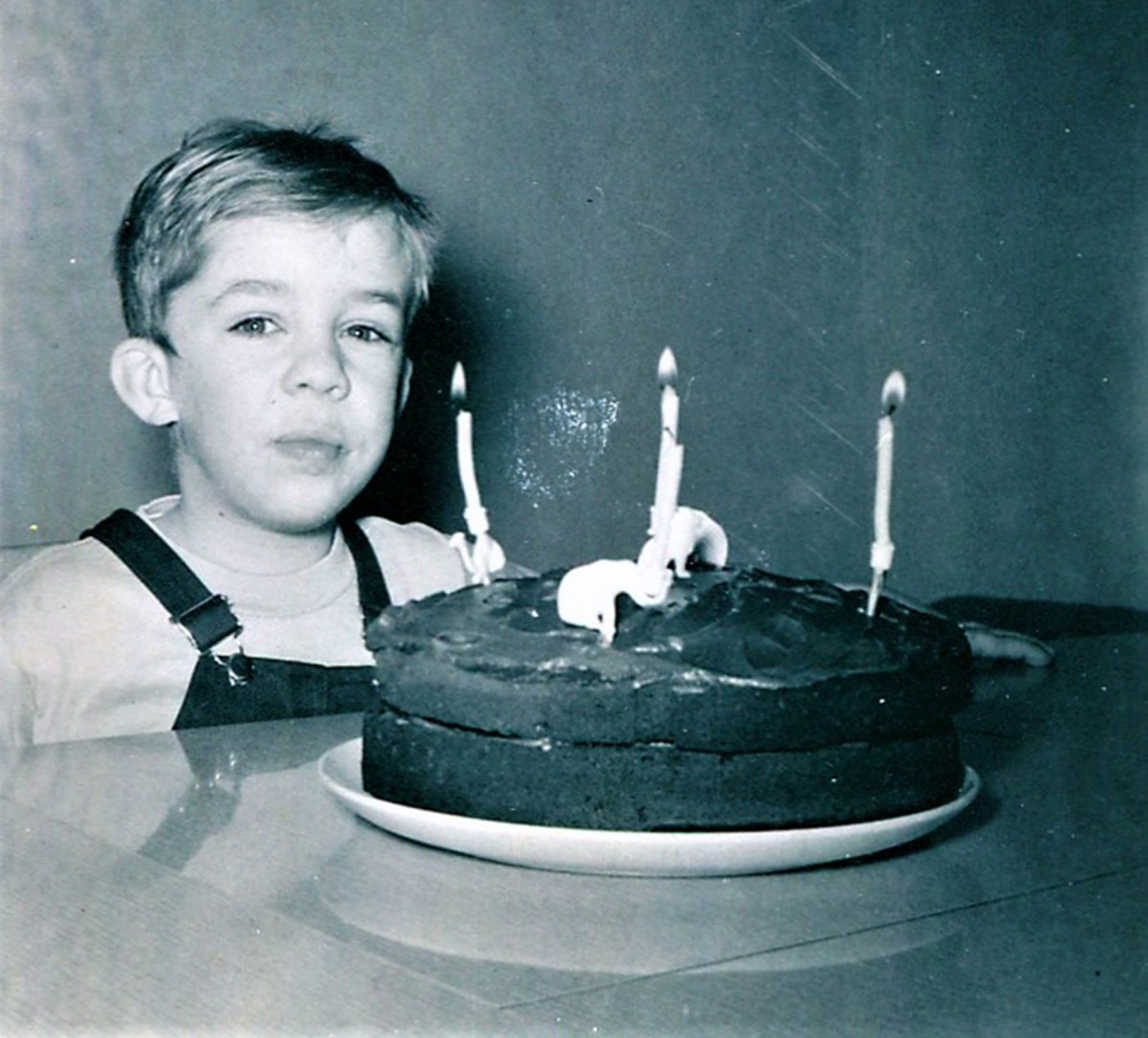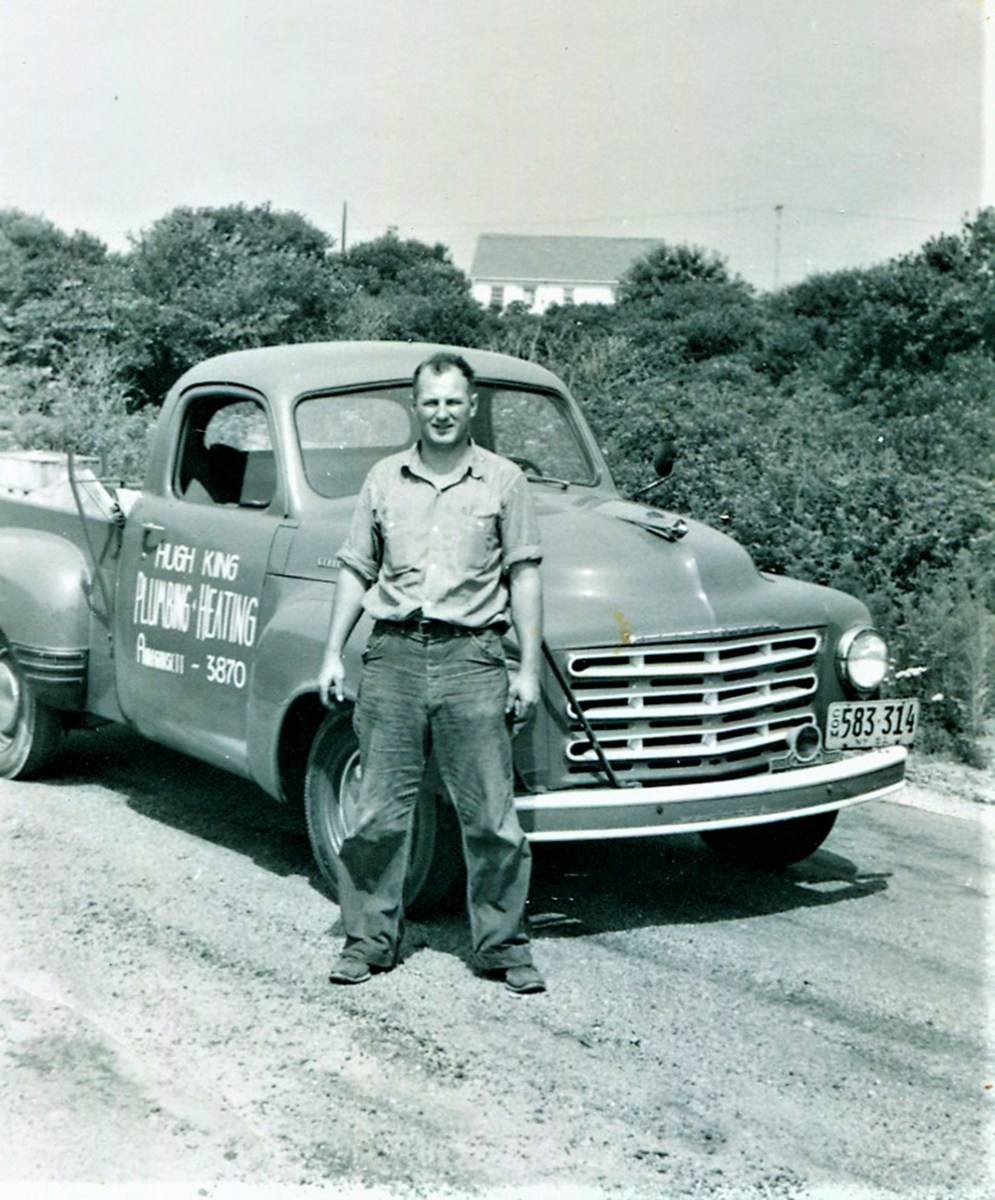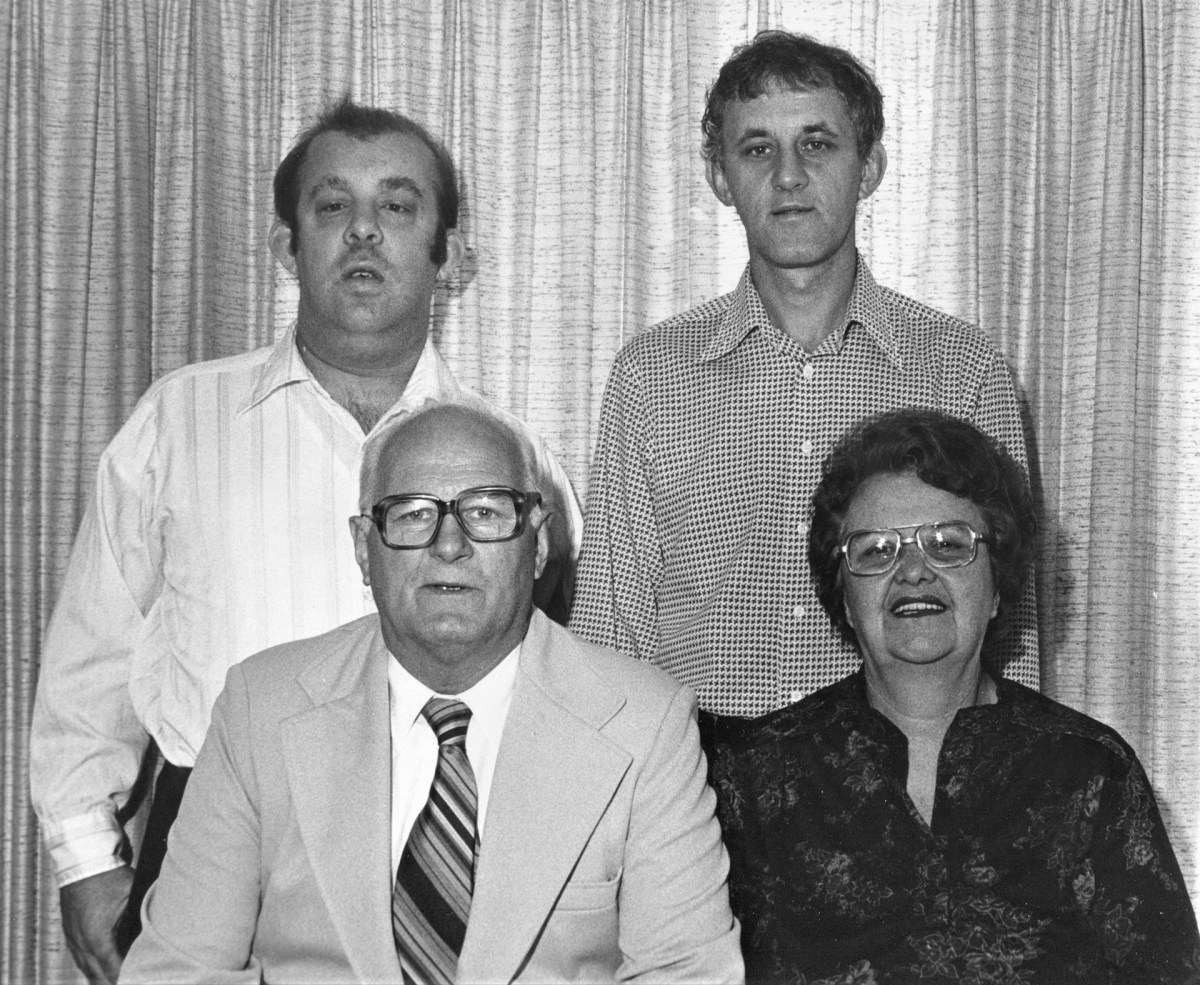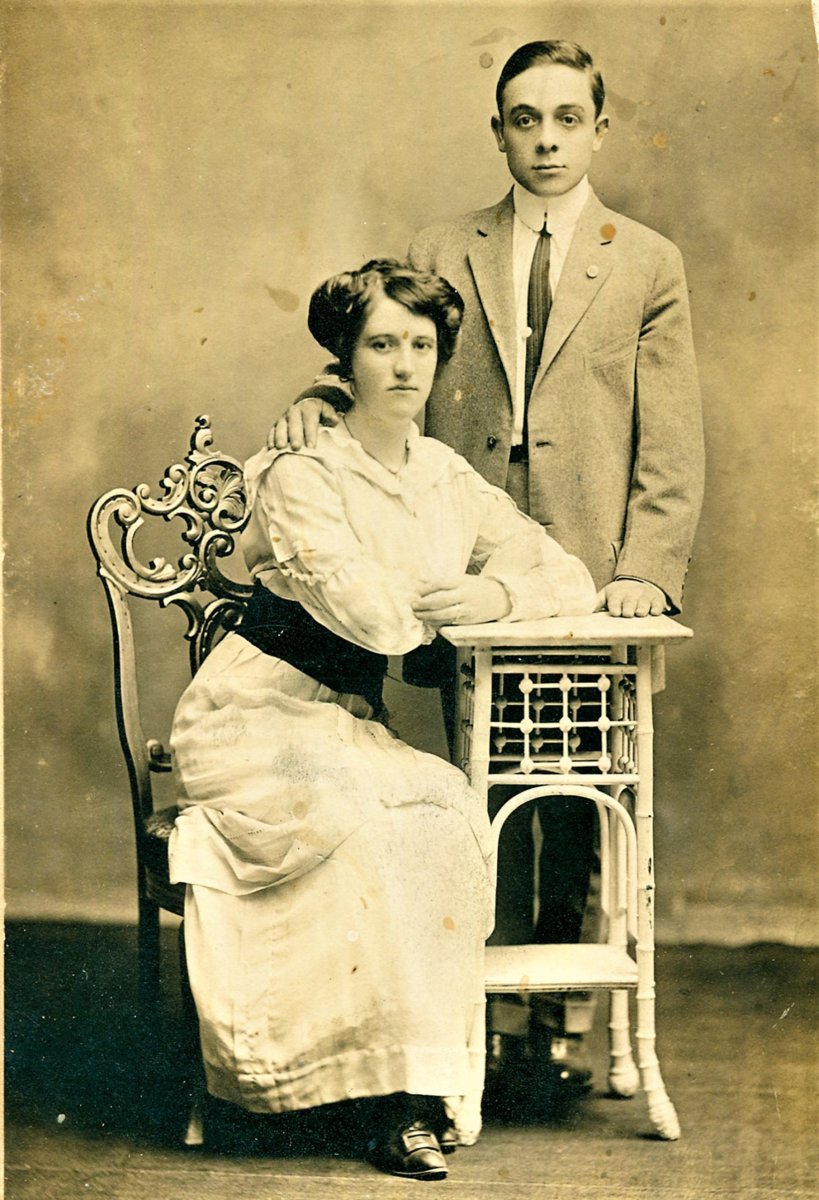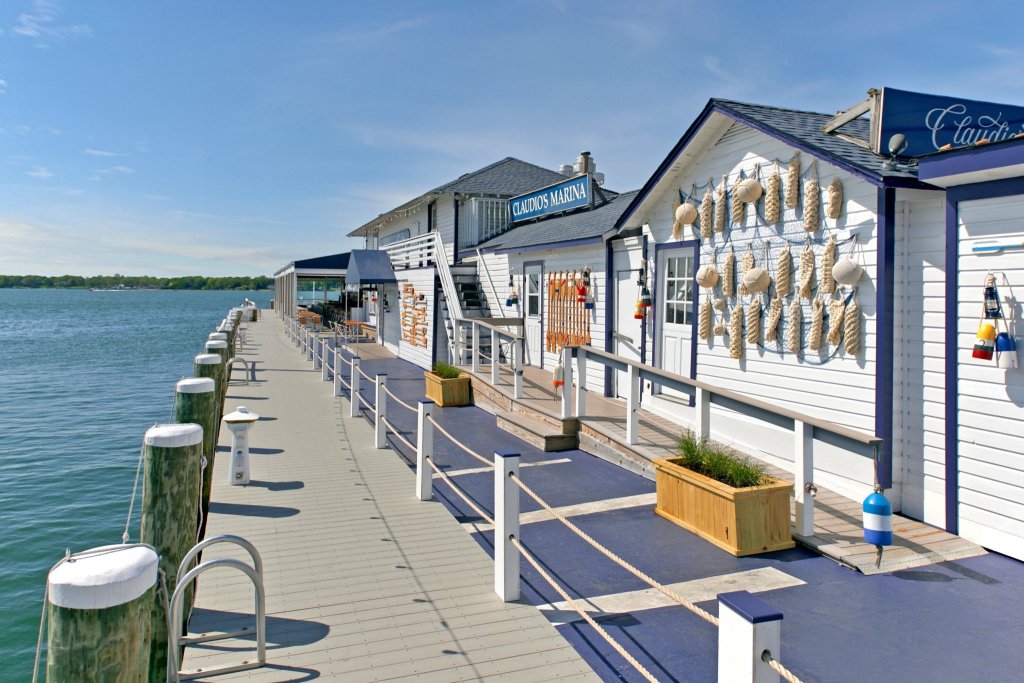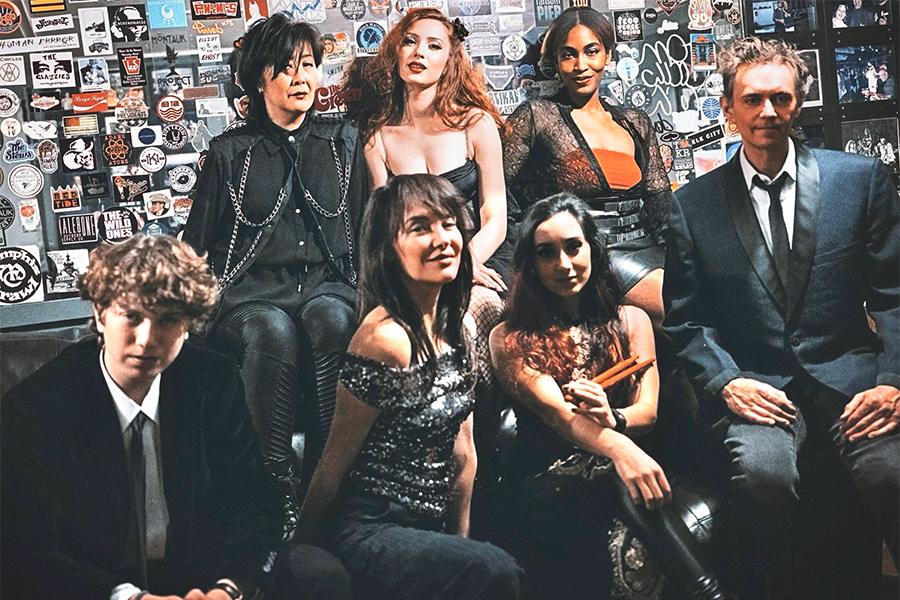A Walk Down Memory Lane With Hugh King
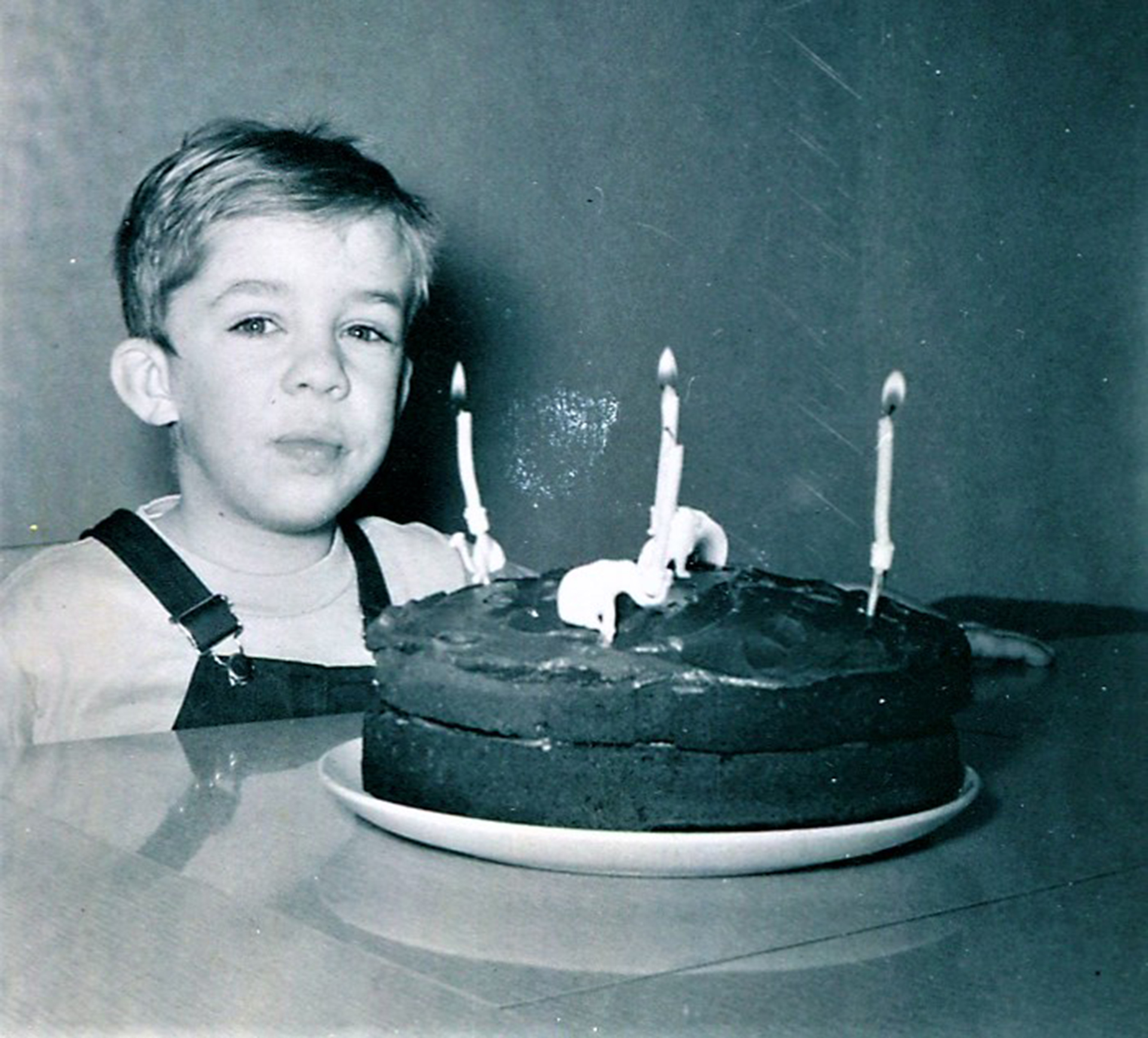
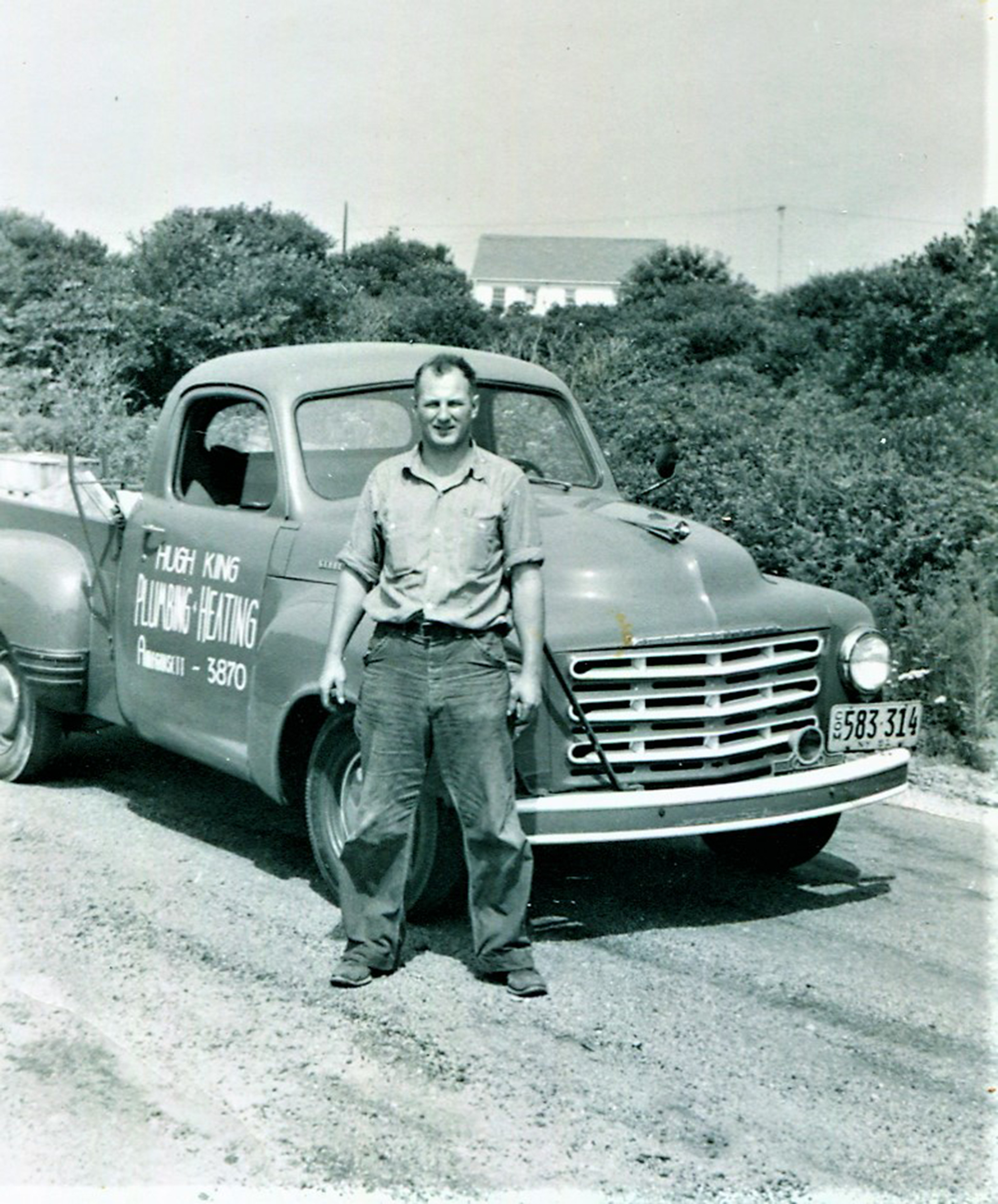
Growing up toward the end of the Depression, Hugh King remembers, “Next to the railroad tracks, there was a potato field. It was right across from my house and when the tractor was run, some of the potatoes would be left behind for gleaning. People would go and pick them and bring them home to their families. It was a neighborhood then and the farmer didn’t mind. He knew it was helping, giving them food they might not have otherwise. It was the same thing with the train. When the firemen on the train would shovel the coal into the engine, some of it would fall off the train. People would go and collect it to help heat their homes.”
Born in Brooklyn in 1941 to Hugh and Louise King, the family moved to Amagansett when he was six years old. He attended Amagansett School and East Hampton High School going on to the State University of New York College at Oneonta to obtain his teaching degree. After spending two years teaching in the Riverhead Central School District, King took a teaching position at Springs School in 1965 and taught grades three through six.
“You need to understand,” said King, “if you lived below the bridge by the Hook Windmill, you were considered a ‘backwater,’ you weren’t one of the ‘up-streeters,’ one of the elite. And if you came from Springs, down there in Bonac, people said you didn’t know anything, you weren’t smart. But Springs School students proved them wrong.” A former Springs School teacher for 31 years, King said, “The kids from Springs were great students and they went on to do many great things.”
An actor at heart, King directed many of the plays the students would perform at the school. “Whenever a student would say they couldn’t do something as part of their role, I would go up on stage and tell them if I can do it, you can. If it was the sound of a dog barking, I’d get up there and bark like a dog. Then I’d say ‘Okay, now you try it.’ I’d also tell them that they were doing something very difficult, something very brave. It’s hard to get up in front of a group of people. That’s bravery. That’s courage,” said King.
A member of several amateur acting communities including the Guild Hall Players Group, Bridgehampton and Southampton community theaters, Maidstone Regional Theatre Company, and the Spindrift Players Group, King had roles in plays such as Dracula, George Washington Slept Here, Mousetrap, and even played Snoopy in a production of You’re a Good Man, Charlie Brown. He admits however that his interest in theater had an unusual start.
“I was in a bar in East Hampton one evening when the door opened and a goat walked in with the cast of the actors from the Guild Hall Players Group. They just put on the play Tea House of the August Moon. They were having champagne at the bar and they were having such a great time that I wanted to join them. I did, and my first play was The Time of Your Life. My father fell asleep and woke up sometime during the second act,” King said with a laugh. “But I think my best play was Wait Until Dark. I played the killer. It was the first time that I think anyone took me seriously as an actor.”
“In the summer of 1979, I helped Sue and Rich Feleppa with their restaurant, The Royale Fish, which was in Amagansett Square. They had hired Loretta Orion to work there as a waitress for the summer. She had been a private duty nurse for Ayn Rand and the Shah of Iran in New York City. She was originally from New Jersey but wanted to get away from the city. Being from the city, she was used to going to Broadway plays. Sue and Rich asked Loretta if she had ever seen me in a play. So, it started that I would give her a ride to the plays.”
Married now for 38 years, Loretta said that she always enjoyed the plays her husband had been in. “He always brought humor into them and made them funny,” she said. Her favorite was King’s role as Snoopy.
In 1999, King stopped acting. “It took so much time for the plays and as I got older, time became more precious to me. It was also getting to the point that I couldn’t remember my lines. I used to know everyone’s lines in the plays. I began agonizing over the 15 lines I had. Moon Over Buffalo was the last play I did.”
Although you won’t find King on a stage anymore, his role as Historic Site Manager for the Village of East Hampton still affords him audiences as he provides tours of the Home Sweet Home Museum, conducts cemetery tours the eve of Halloween, and is a frequent speaker at the village board meetings. King was also one of the stable of inaugural writers, penning a history column, when The Independent began in 1993.
According to King, his interest in history began in 1987 while he was working for the East Hampton Historical Society at The Clinton Academy. “I’d be sitting in there waiting for someone to come in so I could give them a tour. But not many people came in so I would get some books from the Long Island room of the library and read them while I was waiting. I read everything. I realized that there are several reasons why it’s important to study history. It’s important to study what happened in the past because you might not want to repeat it. Another reason is, to remember the things that were done that were right and maybe we should be doing them again.”
“We need to understand that things didn’t just happen. There were reasons why they happened. But if you don’t know where you’ve been, you might not know where you’re going,” King concluded.
valerie@indyeastend.com
